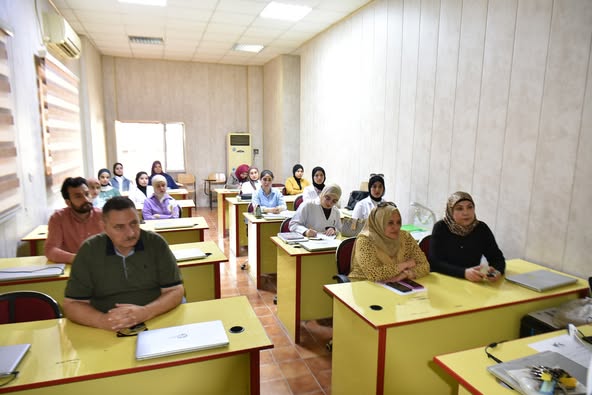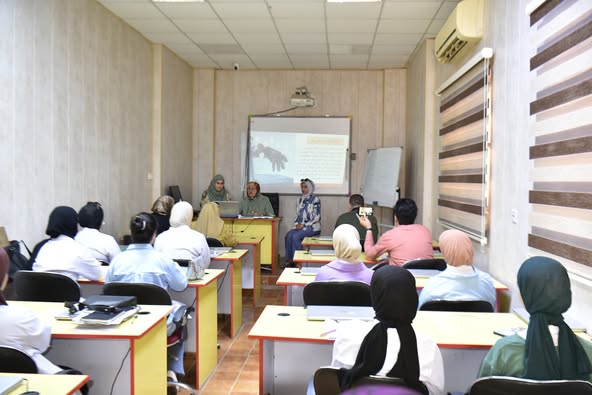Under the patronage of Professor Dr. Sameera Naji Khdim, Dean of the College of Science for Women, the Department of Chemistry, in collaboration with the Continuing Education Unit at our college, organized a workshop entitled Cybercrime and Digital Drugs. The workshop was presented by MS. Wissan Abdul Razzaq Mahmoud, Dr. Zainab Hussein Fadel, and Ms. Tamadur Ali Mahmoud, with the attendance of a number of faculty members, staff, and students from the department.
The workshop aimed to raise awareness among students about cybercrimes and how to avoid becoming victims, as well as to educate them about the dangers of digital drugs and preventive measures to ensure societal safety.
The session included a detailed presentation in which the speakers clarified that cybercrimes are criminal activities targeting computers, networks, or connected devices. Such crimes are often perpetrated by hackers or cybercriminals seeking financial gain, though they may sometimes be motivated by political or personal reasons.
Various types of cybercrime were discussed, including email and internet fraud, identity theft, theft of personal information, financial data theft, corporate data breaches and resale, cyber extortion and ransomware attacks, cyber-espionage, system interference, endangering networks, and copyright violations.
The workshop also introduced a set of essential practices to protect against cyberattacks, such as regularly updating operating systems and software, installing and maintaining antivirus programs, avoiding untrusted websites—especially those that exploit people’s needs such as employment or migration opportunities—refraining from opening suspicious or unknown messages, contacting companies directly when receiving dubious requests, and never sharing personal information over the phone without verifying the caller’s identity.
The second part of the workshop focused on digital drugs, also known as “binaural beats,” which are audio tracks listened to via headphones that emit different frequencies in each ear, leading to a state of brainwave confusion and disruption of normal neural signals.
The lectures targeted youth as they are the most vulnerable demographic to this phenomenon. A range of preventive strategies for parents was presented, such as monitoring the audio content their children listen to online for extended periods, raising awareness about the risks of digital drugs, enforcing appropriate supervision, encouraging engagement in productive activities like art or sports, fostering open dialogue with children to understand and solve their issues constructively, avoiding violence and threats, emotionally supporting adolescents, and nurturing their self-confidence to empower them in life’s challenges.
The workshop concluded with clear engagement from the attendees, featuring significant discussions and questions that enriched the topic and enhanced students’ awareness of electronic and digital threats.










